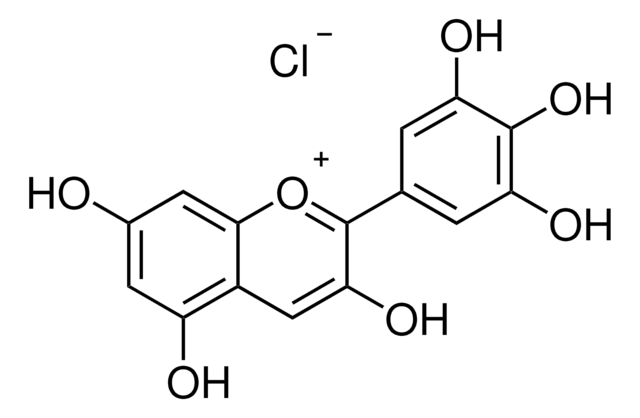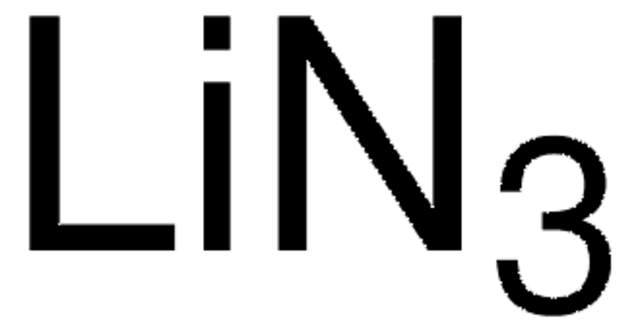71289
Sodium azide
BioUltra, ≥99.5% (T)
Synonym(s):
NaN3, Natrium azide
About This Item
Recommended Products
product line
BioUltra
Quality Level
Assay
≥99.5% (T)
form
crystals
impurities
insoluble matter, passes filter test
loss
≤0.1% loss on drying, 105 °C, 4 h
pH
~10.0 (25 °C, 1 M in H2O)
solubility
H2O: 1 M at 20 °C, clear, colorless
anion traces
chloride (Cl-): ≤50 mg/kg
sulfate (SO42-): ≤50 mg/kg
cation traces
Al: ≤5 mg/kg
As: ≤0.1 mg/kg
Ba: ≤5 mg/kg
Bi: ≤5 mg/kg
Ca: ≤50 mg/kg
Cd: ≤5 mg/kg
Co: ≤5 mg/kg
Cr: ≤5 mg/kg
Cu: ≤5 mg/kg
Fe: ≤5 mg/kg
K: ≤100 mg/kg
Li: ≤5 mg/kg
Mg: ≤10 mg/kg
Mn: ≤5 mg/kg
Mo: ≤5 mg/kg
Ni: ≤5 mg/kg
Pb: ≤5 mg/kg
Sr: ≤5 mg/kg
Zn: ≤5 mg/kg
absorption
cut-off at 276 nm in H2O at 1 M
SMILES string
[Na]N=[N+]=[N-]
InChI
1S/N3.Na/c1-3-2;/q-1;+1
InChI key
PXIPVTKHYLBLMZ-UHFFFAOYSA-N
Looking for similar products? Visit Product Comparison Guide
Application
- in flow cytometry buffer
- in bromodeoxyuridine (BrdU) labeling of synchronized hydroxyurea (HU)-arrested cells
- to immobilize worms
Signal Word
Danger
Hazard Statements
Precautionary Statements
Hazard Classifications
Acute Tox. 1 Dermal - Acute Tox. 2 Inhalation - Acute Tox. 2 Oral - Aquatic Acute 1 - Aquatic Chronic 1 - STOT RE 2 Oral
Target Organs
Brain
Supplementary Hazards
Storage Class Code
6.1A - Combustible acute toxic Cat. 1 and 2 / very toxic hazardous materials
WGK
WGK 2
Flash Point(F)
Not applicable
Flash Point(C)
Not applicable
Personal Protective Equipment
Choose from one of the most recent versions:
Already Own This Product?
Find documentation for the products that you have recently purchased in the Document Library.
Customers Also Viewed
Articles
Cellular oxidative stress is countered by enzymatic scavengers and antioxidant modulators against reactive oxygen species damage.
Cellular oxidative stress is countered by enzymatic scavengers and antioxidant modulators against reactive oxygen species damage.
Cellular oxidative stress is countered by enzymatic scavengers and antioxidant modulators against reactive oxygen species damage.
Cellular oxidative stress is countered by enzymatic scavengers and antioxidant modulators against reactive oxygen species damage.
Our team of scientists has experience in all areas of research including Life Science, Material Science, Chemical Synthesis, Chromatography, Analytical and many others.
Contact Technical Service










